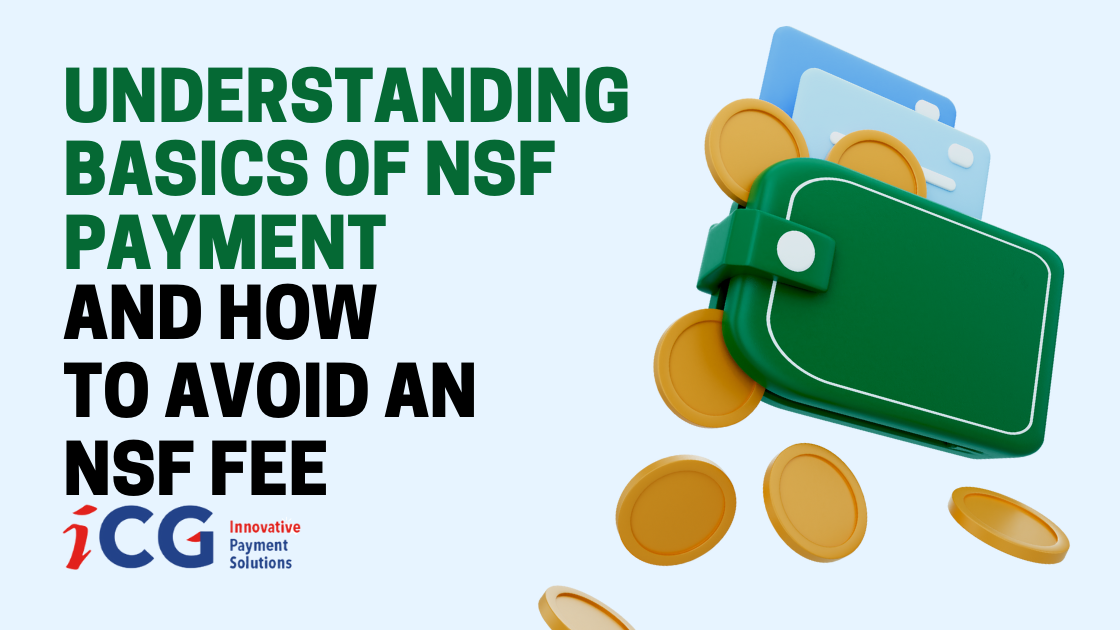Have you ever tried withdrawing money from a bank account that has a low balance, the dreaded NSF payment? Unknowingly, you may have attempted to withdraw an amount larger than the one stored in the checking account. If you have, you will have most likely encountered a message that says “Insufficient Funds.” Moreover, you will have faced a penalty/fine for trying to withdraw such an amount because of the NSF payment code. Writing an NSF check puts you in a tough place with the Nacha and ACH Network. In such cases, your transaction is classified under NSF payment, aka, Non-Sufficient Payment or Insufficient Payment.
In the following blog, we will discuss the various intricacies associated with an NSF payment and NSF check.
How Much Will NSF Payments Cost You?
When you already have a low balance in your account, an additional NSF fee is just adding hurt to injury. Banks charge anywhere between $10 to $35 as an NSF check fee. It varies between different banks and credit unions. According to a Forbes survey, the average NSF fee, also known as overdraft fees for 2020, was $24.38. Luckily, the NSF fee does not directly impact your credit score. However, that being said, it is still best you avoid this fee at all costs. Don’t write off an invoice because you know it is an NSF check, just talk with the representative to give you more time. If you plan to open a new bank account, make sure that you understand the NSF check fee structure beforehand.
How Do Banks Handle NSF Payments?
Some banks cover the transaction in case of an NSF payment. However, in most cases, the banks do not cover such payments. If you are using a debit card transaction to purchase under such situations, the payment will fail outright. Thus, you will not be able to complete your transaction. However, if your bank does cover an NSF payment, you can complete the transaction at that point. In either case, the bank will levy a penalty on your account.
How to Avoid NSF Fees?
You can avoid such a fee by ensuring you have enough balance for all future transactions you intend to carry out using checks or cards. Experts suggest that you can follow these best practices to avoid such fees:
Ensure enough checking account balance before making a payment:
Nowadays, most banks and credit unions offer digital services that help you check your available bank balance on your phone within seconds. You can use these services to ensure that you have enough bank balance before using a debit card for a heavy payment.
Avoid situations where your account is overdrawn:
It is a good idea to balance your expenditure with your savings and earnings towards the beginning of every month. You can ensure that your account is never in an overdrawn state by creating a solid budget plan and sticking to it.
Use credit cards to make a payment:
If you need to make an important purchase but do not have enough balance in your account, you can always use your credit card instead of a check or a debit card. A smart credit card usage can give you up to 60 days grace period without any penalties.
Note: Be careful while using credit cards. Unregulated use of this instrument can easily result in crippling debt.
Make a limited number of ATM withdrawals every month:
By doing this, you can cut down on the transaction fee and keep active tabs on the available balance in your accounts. Several people tend to spend cash on hand, so always withdraw only the amount you need to carry out a particular transaction, plus a little extra for knick-knacks.
Don’t write bad checks:
This one is self-explanatory. Never write a check that you cannot honor. This not only attracts NSF check fees but can also create mistrust between you and the vendor.
Use post-dated checks:
If you know you do not have enough balance to cover the cost of a particular purchase but want to use a check anyway, ask the vendor if they can work with a post-dated check. If they agree, you can write a check with a withdrawal date set in the future. A comfortable date when you know you will have enough balance to ensure that your transaction isn’t stopped by a bounced check. Alternatively, you can use ACH payment solutions to save costs and get faster processing!
What are the Top Benefits of ACH technology?
What to Do if You are Asked to Pay an NSF Check Penalty?
Just ask for a consideration of waiver politely.
Most banks are tolerant towards their valued customers and happy to waive off or return the NSF fees on their checking accounts. If you have an excellent relationship with your bank and this is a one-time offense, the bank will be happy to waive the fee off. However, you need to be proactive and deposit more money into the bank to cover the negative balance. Once you have done that, you can speak to the bank representatives calmly and explain how this is a one-time occurrence or an oversight. If you are not a repeat offender, most banks will be generous enough to waive the fees.
You can have multiple active lines of credit with different banks and still never attract a single cent in penalties. The only prerequisites to maintaining a healthy relationship with your bank are to be proactive and diligent in maintaining your finances.
Want to stay ahead of the curve with your payment processing needs? Schedule a call with our team today!
Date originally published: November 1, 2021

